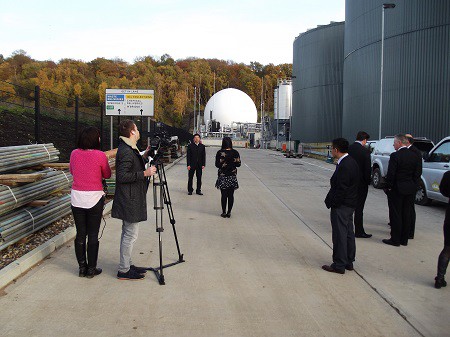EXCLUSIVE: Years of delays in deciding an outlet for its refuse-derived fuel has found West Sussex county council unable to achieve the £5.6 million savings it had originally planned.
And, the authority, facing up to “unaffordable” costs on the waste front, has now opted to beef up its internal waste team with the appointment of a waste and energy director.
The county council this month abandoned a 2011 RDF outlet procurement strategy in favour of yet another tender exercise, since the previous bids it received for its residual waste outputs have expired.
It means that the majority of RDF produced at Biffa’s Brockhurst Wood MBT facility will continue to go to landfill at extra expense to taxpayers, compared to RDF costs, while the council carries out a market consultation, authorised by the cabinet member for finance earlier this month.
The council has also confirmed it is recruiting a new waste, energy and environment director to oversee the next phase of its strategy.
A West Sussex county council spokesman said: “The role of Director of Energy, Waste and Environment is a new role reporting into the Executive Director of Energy, Infrastructure and Environment which will be responsible for the county council strategy on all aspects of energy, waste, environment and sustainability. The recruitment process for this role will commence in the New Year.”
MBT
At present, household residual waste in West Sussex is sent to the Brockhurst Wood mechanical biological treatment facility under the council’s Materials Resource Management Contract awarded to Biffa in June 2010. But, Biffa is not responsible for securing an offtaker for the waste in an RDF form – the authority has this responsibility.
The MBT uses a combination of technologies including mechanical pre-treatment, wet pre-treatment and anaerobic digestion, with RDF accounting for 50% of output. The contract did initially included an option to build a thermal treatment plant to convert the waste into energy, but according to a report by West Sussex county council in 2011 this was “not considered advantageous”. The county had originally claimed the treatment plant would heat houses being built not far from Brookhurst Wood.
Delays
The council had originally planned to have found a home for RDF produced at Biffa’s MBT plant by June 2013 – at which time the facility was due to be completed. But delays to commissioning meant that the plant did not reach full operations until 14 July 2015.

The Chinese Society of Environmental Sciences taking a tour of Biffa’s Brockhurst Wood MBT facility during commissioning in 2013
In its report on the procurement strategy for residual waste streams published this month, West Sussex notes: “Given the passage of time and industry developments, the period of validity of bids submitted during the RDF Procurement has expired.”
Without an offtaker for the material, residual waste processed through the MBT will continue to be sent straight to landfill by default – a solution which is “not affordable” under the council’s medium-term financial strategy from now until 2021.
In an update of the strategy reviewed by the councils Performance and Finance Select Committee on 1 December, the council had planned to achieve £5.6 million through reprocuring its waste.
But the committee report states: “Due to the unavoidable delays in RDF procurement it is no longer possible for these savings to be achieved in the same way as originally planned. A new approach to delivering the savings has emerged from negotiations with the current service provider and options for additional procurements.
“These negotiations will be concluded imminently and will deliver immediate revenue savings. These procurements will commence as the next phase and will include varying timescales for delivery.”
Meanwhile, the council’s budget for 2016/17 includes £302,000 to cover the additional 1.38% uplift in the landfill tax rate above inflation, while £738,000 has been drawn down from the Biffa contract reserve to cover “anticipated waste disposal costs in line with the financial model”.
Expectations
In seeking a new procurement, the council is to take into account “changed expectations” of what an RDF contract can deliver. This is notable as there is a growing consensus within the waste industry that the market conditions for RDF export are no longer as favourable as they were two to three years ago, with demand for the material reduced and incinerator gate fees edging up.
This is due to a number of factors, but primarily competition from other European countries to fuel energy from waste plants on the continent which are reaching capacity. In its latest RDF forecast, consultancy Eunomia has also suggested that the uncertainties of the UK’s future trading relationship with the EU could impact exports of RDF to Europe and increase demand for domestic energy from waste infrastructure (see letsrecycle.com story).
Concern
One county councillor, who did not wish to be named, told letsrecycle.com he was “concerned” about the future of West Sussex’s waste strategy and added the council was under the impression its RDF would be “readily saleable”.
The councillor added: “There was a view that an RDF contract would be more welcome than it has been since oil prices have halved.”
The post West Sussex scraps RDF strategy and starts again appeared first on letsrecycle.com.
Source: letsrecycle.com Waste Managment




